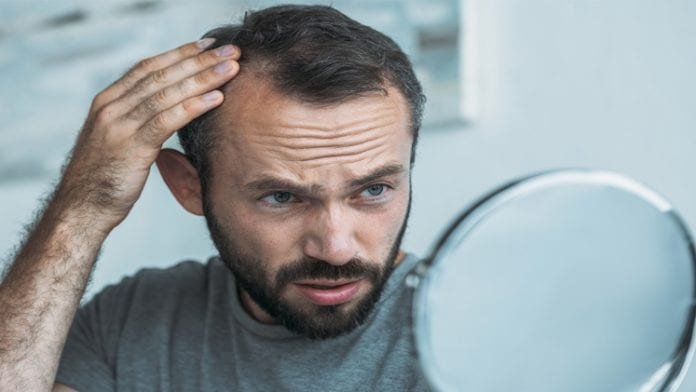Last Updated on March 12, 2024 by admin
One of the measures of your health is your hair. If the scalp continues to widen or excess hair begins to fall out, it is a sign of a severe problem. The condition and health of your hair are closely linked, as the health of your hair depends on the balance of hormones and the provision of proper nutrition in the body. Your hair sends you small but essential signals about which parts of the body you need to pay attention to. We need to learn to recognize those signals. If you also have a hair problem, then you need to find the right reason behind it and practical tips to eliminate it. Hair loss is called androgenic alopecia in medical terms.
Hair loss is caused by a hormone called DHT. As this hormone increases, the blood circulation in the hair decreases, and the hair starts falling out. To put it bluntly, a healthy adult person naturally loses 80 to 100 hairs per day. There is no need to think about it as a new hair grows again.
Table of Contents
What is healthy hair?
Generally speaking, healthy hair is a condition in which the components and water inside the hair are sufficiently filled, there are few cavities, the cuticle on the hair’s surface is not defective, and the hair is evenly arranged.
Hair that meets this requirement will look like this:
- Each hair is thick
- Elastic
- Glossy
- Less likely to break or split ends
- Smooth touch and easy finger passage
How does it compare to your hair? The hair should be in a healthy condition that meets the above criteria. However, if you can see many of the opposite conditions, it may be a hair problem.
How to check the health of your hair
Let’s check the health condition of the hair from the viewpoint of the scalp. Checks are made based on “scalp condition” and “hair loss condition”. In particular, the scalp is an essential part of checking the health condition because it becomes the soil where hair grows. In addition, hormonal changes have a significant effect on healthy hair.
Hair Dye / Hair color
Colored hair is one of the essential parts of today’s fashion. You once saw blonde women only in the West. This hair could not be thought of in this region. But science, like many things, has made the impossible possible. Thanks to science, now anyone can dye their hair in any color like gold, silver, and red, blue, purple. You can easily create a combination of beauty and modernity. There are two to three types of hair coloring. Many people dye their hair beige. Can hair dye cause hair loss? Many people may have such questions, but you will not have this problem if you take your hair.
Advice
– Consult a beauty expert before painting. Hair loss, itching or skin allergies can occur if the hair type is not understood and dyed. If you want to highlight your hair, stop using henna from two months ago.
– Massage warm oil once a week. After that, the hair will be good.
– Do not blow dye too much.
– Do not use an extra hair dryer. Instead, hold the hair dryer at least 3 inches away from the hair.
– When the hair gets wet in the rain, it becomes dull and rough. So wash wet hair quickly with water.
– For oily hair, use hair rinse without using thick conditioner.
– Refrain from spraying dyed hair.
– Comb the extended hair with a thick comb.
Hair, like the body, needs nutrition. Without proper nutrition and care, hair will not grow long, strong and healthy. And for this, it is essential to apply oil to the hair according to the rules. Many people are confused about how many times to apply oil on the hair. It is often seen that using extra oil makes your hair and scalp oilier. Then the oily hair is dirtier and dandruff.
Read More: Does deep tissue massage hurt


























